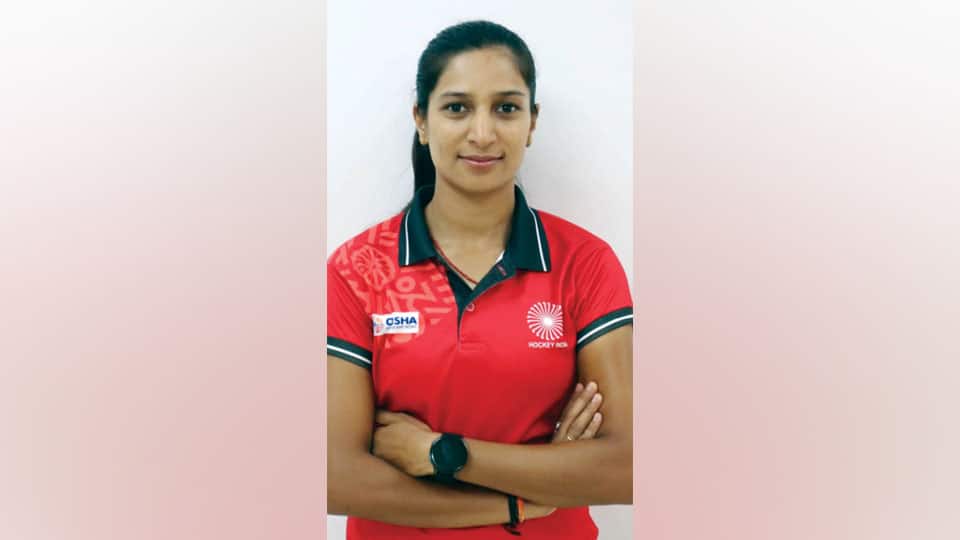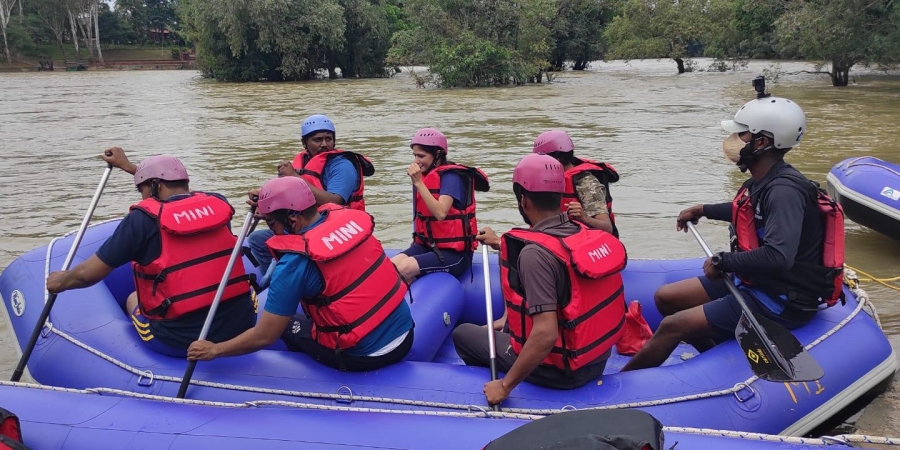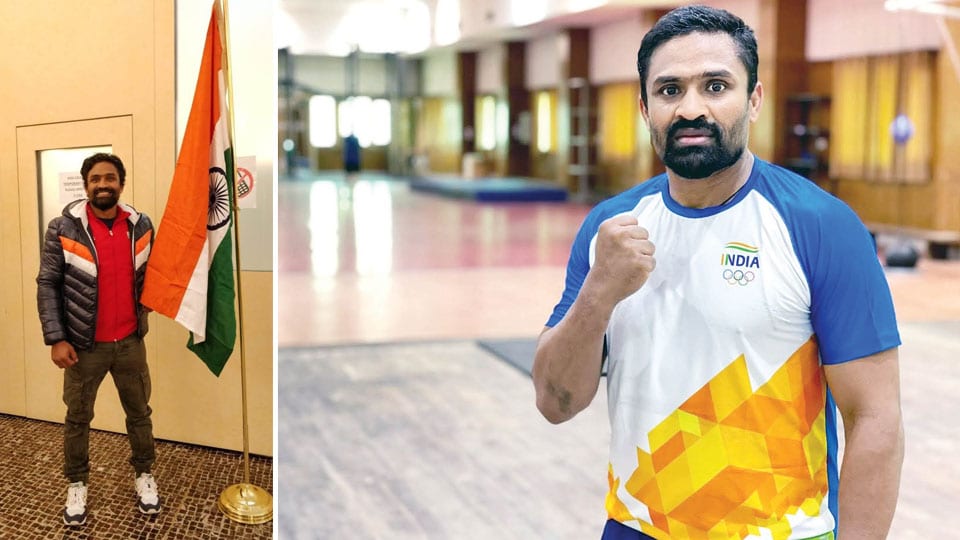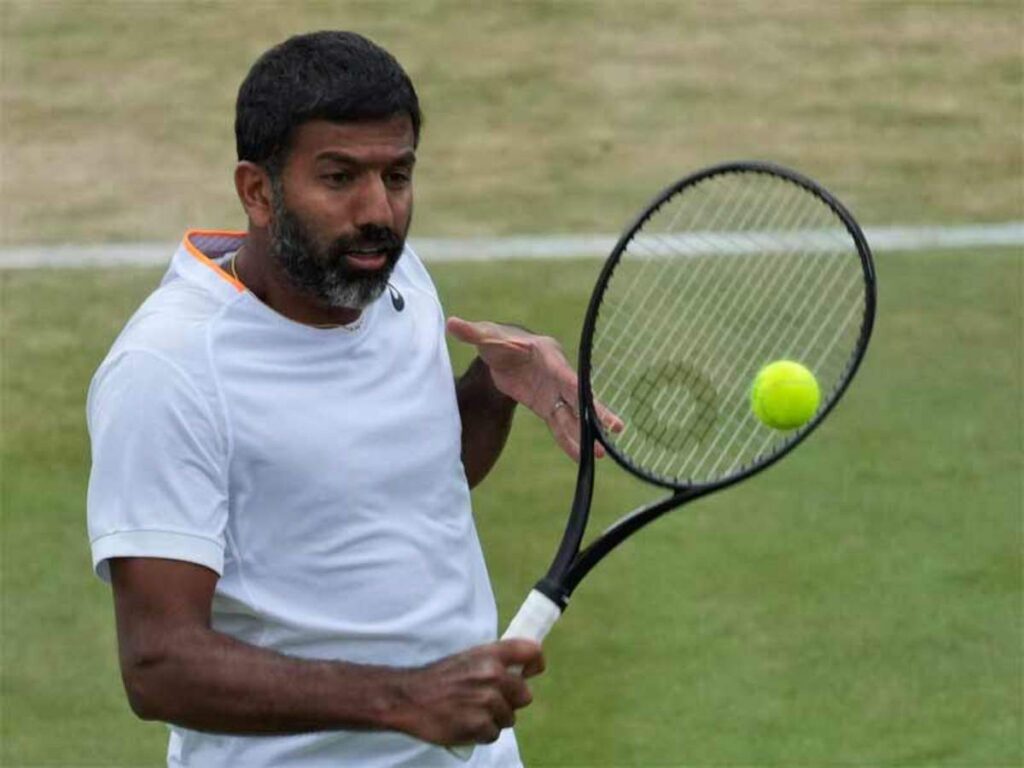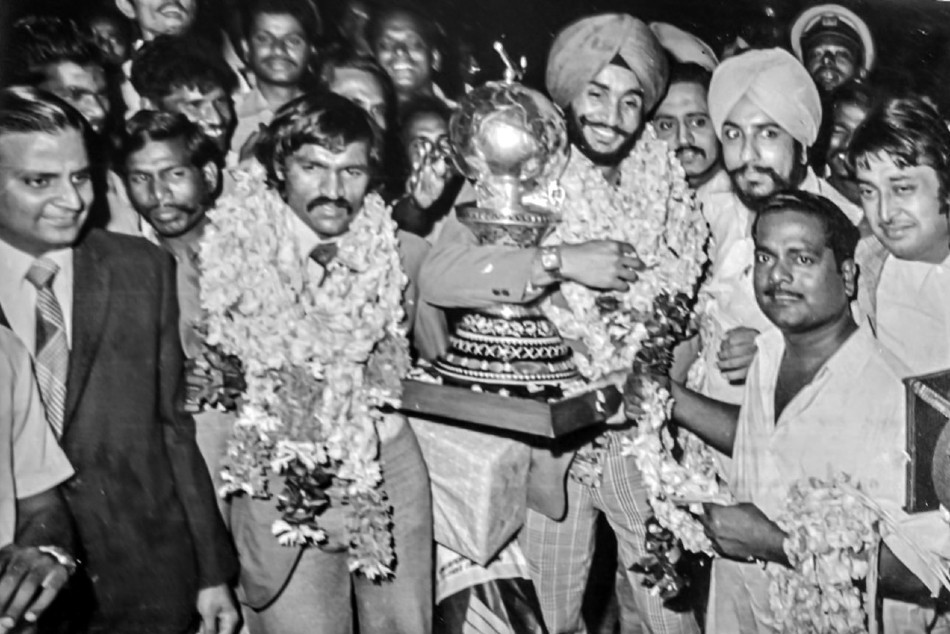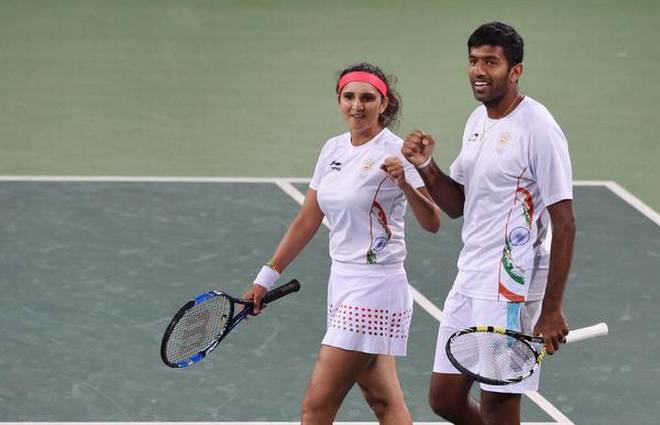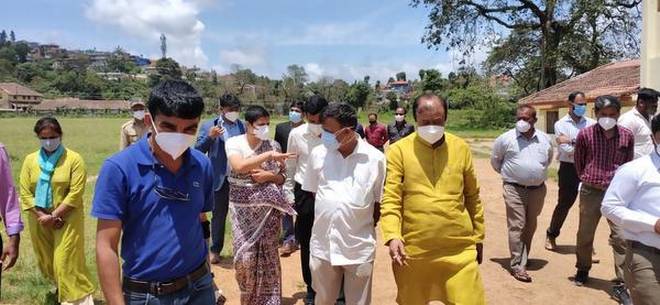A former employee of Bharat Petroleum, Somaya hails from Coorg in Karnataka and is settled in Mumbai.
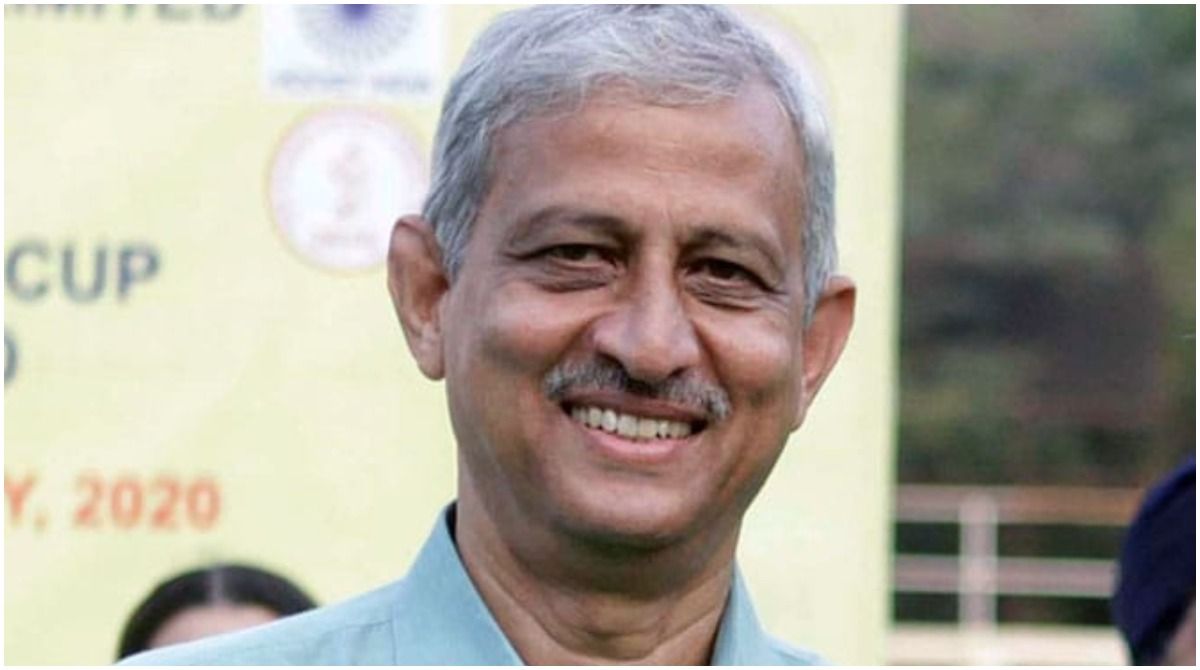
M.M. Somaya or Maneyapanda Muthanna Somaya, the 62-year-old Arjuna Award-winning hockey player was the former captain of the Indian Hockey team in the Seoul Olympics of 1988. He has represented the country in the 1984 Los Angels Olympics also as part of the Gold medal winning Indian Hockey team of the 1980 Moscow Olympics under Captain V. Bhaskaran.
A former employee of Bharat Petroleum, Somaya hails from Coorg in Karnataka and is settled in Mumbai. One of the most decorated Right Wings the country has ever produced, the former captain speaking to IANS on the possibility of the present Indian team in Tokyo Olympics and a wide array of subjects related to Hockey in particular and sports in general.
Q: Indian hockey team is playing in Tokyo Olympics. As a former international, how do you rate the team?
A: The Tokyo Olympic team is one of the fittest to leave our shores. This enables them to play high-intensity hockey for the entire duration of a match.
Besides, they are more aware tactically than earlier teams. The ‘rolling substitution’ rule in particular is being leveraged well by the team and this should enable them to maintain a blistering pace right through the tournament.
Mentally too the team seems more composed and has conquered the fear of playing higher-ranked teams.
The team has beaten the best in the FIH PRO League and other matches over the past 2-3 years. They will therefore be entering the Olympics with a lot of positive energy. They more than justify their 4th position in the FIH rankings.
Q: You were part of the Indian team which won gold in the Moscow Olympics. Please narrate the experience.
A: I made my international debut directly at the Moscow Olympics. It was my first trip out of India and it was the first time I was seeing poly grass which was the artificial surface used in the 1980 Olympics. India didn’t have an artificial surface then. I was also seeing a European for the first time on a hockey field and was awestruck by their fitness and size!
‘Adapt’ became the buzzword for me.
I was fortunate that I had a great Coach in Balkrishen Singh and Captain in Bhaskaran who mentored me and ensured that the Moscow Games were memorable on and off the field. The American led boycott of the Games saw hockey having a depleted field. So winning Gold with a young team was extremely satisfying but did not fill us with euphoria.
Q: You participated in 1980 Moscow, 1984 Los Angeles and captained Team India in 1988, Seoul Olympics. Tell us the memories?
A: The three Olympics were memorable for different reasons. In Moscow winning the Gold medal saw the team get onto the victory podium for the award ceremony. This was a childhood dream and so very special.
At Los Angeles, we had probably the best team India has ever had after introduction of astroturf. We played fantastic hockey but lost out a semifinal berth on an inferior goal difference. Being on that team with skipper Zafar Iqbal, Mohd Shahid, Mervyn Fernandis, Joaquim Carvalho and Marcellus Gomes was indeed an honour.
At Seoul, I had the opportunity of captaining the team which was another high point of my career. Jointly creating game plans with the team and watching them play out in matches was immensely satisfying. Here again, we were pipped to a semifinal spot but finished in the top six.
Difficult to believe that this sixth position has not been matched to date by Indian teams over the seven subsequent Olympic Games.
Q: Has Covid affected the performance of the Indian Hockey team?
A: There were a few players who had tested positive last year but have recovered fully. The team’s preparation did receive a bit of a setback when the last few PRO League matches had to be cancelled due to COVID. However, the coaches have ensured that high-intensity matches were played in the training camp between the team and other probables at the training camp in Bangalore.
In fact, COVID could be a major factor during the Games. Any deviation in protocol or laxity could see players and entire teams losing out. I’m certain that the Indian team like others has trained adequately for this extraordinary situation.
Q: India and Pakistan were two countries that relied on dribbling. Has the change in style of the game affected the performance of the Indian team?
A: Dribbling and other intricate stick skills were effective during the period when hockey was played on the grass. Both India & Pakistan have changed their style of play to suit the gruelling demands of modern hockey artificial turf. India seems to have forged ahead during the past 10-12 years. Scientific training has enhanced the physical condition of players. So they have been able to adjust better to the breakneck pace of today’s game. Teamwork has finally taken precedence over individualistic play. The more robust stick skills like the slap shot, tomahawk reverse and the drag flick are now strong weapons in the Indian arsenal. The shift from playing artistic hockey to playing effective hockey has been working well for India.
Q: What according to you are the major differences you find in hockey during your playing days and presently?
Q: Hockey has had a major makeover due to many rule changes. The abolishing of ‘offside’ has transformed the game completely. Artistic build-up with short passing has given way for the frequent long heave into the striking circle in search of poaching forward. The alteration of the ‘turning’ rule has made it difficult for defenders since an attacker can now shield the ball with his body and then speed off in any direction. And the latest ‘rolling substitution’ rule has seen the game being played at an explosive pace. So tactics have changed to suit these rules. Field hockey has certainly undergone a major transformation over the past three decades.
Q: What are the major strengths of this Indian team?
A: This Indian team fears no one. Wins against Australia, Belgium, Argentina, Germany and Holland during the past 1-2 years has infused a lot of self-belief. Internationally acclaimed coaches like Rolent Oltmans, Terry Walsh and the present incumbent Graham Reid have ushered in a more flexible system of play. In defence, the team maintains excellent shape right through a game. There is better structure in building attacks from deep in their own territory. The transition from defence to attack and vice versa is done in a flash. Drag flicks from penalty corners are more consistent. But for me, the shift from play being centred around one or two players to now being shared among all outfield players is most heartening. I have always believed that Individual play wins matches whereas team play wins tournaments.
Q: Has Cricket overshadowed the national sport hockey, How do you rate the junior level tournaments in the country, I mean school and College level?
A: All Sports have their own strengths and attractiveness. To my mind, the commercial and marketing success of sports is not the only indicators of whether a sport is doing well. Hockey is a truly global sport with more than 100 countries playing competitively. The frenetic pace and specialised skills have made it more challenging and stretch the limits of endurance. There has never been the taint of match-fixing or drug abuse in hockey. Hockey has done well to maintain its status as an Olympic discipline. However, efforts should be made to improve visual appeal to keep the turnstiles ticking and for the benefit of the television viewer.
The junior-level tournaments in India have got a shot in the arm by the introduction of the inter-Academies tournament. Hopefully, this will be the platform for juniors to showcase their talent. Privately run academies and government-run Sports Hostels are throwing up some fine talent. Punjab, Odisha and Haryana have emerged as big hockey hubs. UP, MP and Karnataka are showing signs of revival in terms of talent identification & grooming. A National Hockey Academy in Delhi has also been established. More advanced and scientific training in these Academies and Sports Hostels will broaden the talent pool. Khelo India has U17 and U21 tournaments for the top state teams. These and other junior tournaments need special attention from selection committees to identify potential champions.
Q: You would have interacted with several athletes during your Olympic tournaments. Can you explain?
A: I have seen many sports superstars from close quarters at the Olympic Villages. Sprinter Carl Lewis, Tennis stars Stefan Edberg, Steffi Graf, and Gabriella Sabatini and gymnast Nadia Comaneci were a few of those who we would frequently see. I preferred not to meet any of these stars since everybody in the Village was focused on their respective events and desired their own space during the intervening period. Being in the same village as these superstars and seeing them carry themselves with poise and dignity was in itself inspiring for me. Meeting Vijay Amritraj in the 1988 Olympics was fun. We stayed in the same building and went to the stadium with his brother Anand to watch him play Henri Leconte. He too used to come for our hockey matches. He had International popularity and was a great ambassador for sport.
source: http://www.india.com / India.com / Home> Sports / by IANS / July 18th, 2021
